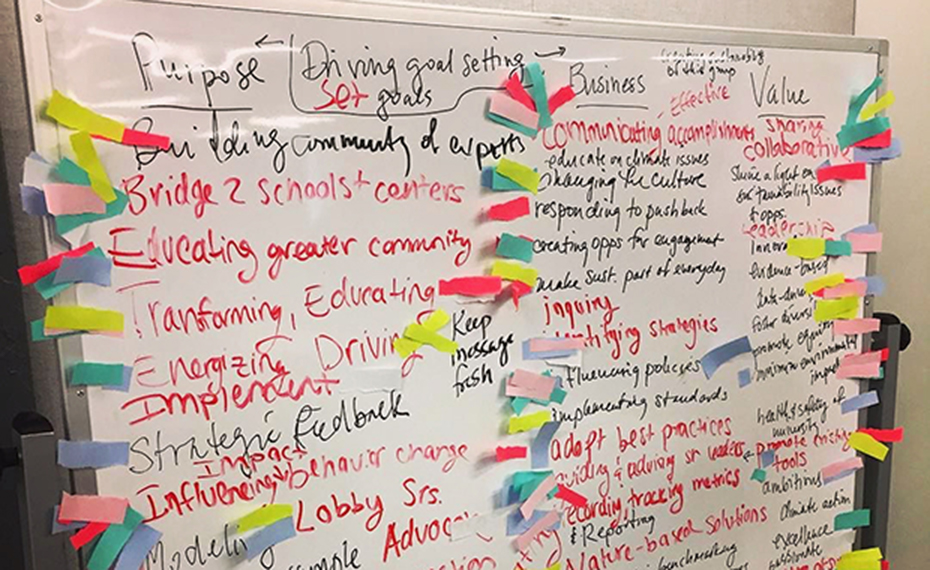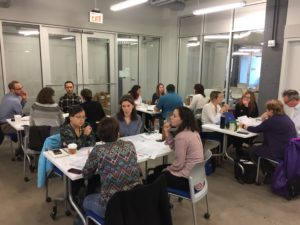Project Background
Since 2009, the University of Pennsylvania’s Sustainability Coordinators have met on a monthly basis to share information across Penn’s schools and centers and to support the implementation of the University’s Climate Action Plan throughout these schools and centers. The school and coordinator hosting the monthly meeting informally determined meeting agendas and structure, and participation in the group had been on an opt-in basis.
In late 2016, the group determined that it had grown substantially over the years and found itself in a position to prepare for further growth by participating in a retreat to determine how best the Sustainability Coordinators can support the implementation of the Climate Action Plan 2.0 (CAP2.0). Penn’s Sustainability Office sought a facilitator to ensure that the retreat was productive and allowed Penn staff to fully focus on meeting their goals, which were both strategic and tactical.
Project Description & Outcomes
 iSpring assisted Penn’s Sustainability Office by facilitating several retreats and meetings over the following two years. The first retreat, held in January 2017, focused on creating a mission statement, generating a list of goals and tasks to support CAP2.0, and creating a roadmap for 2017 meetings and activities, as well as an action plan for the first half-year after the retreat.
iSpring assisted Penn’s Sustainability Office by facilitating several retreats and meetings over the following two years. The first retreat, held in January 2017, focused on creating a mission statement, generating a list of goals and tasks to support CAP2.0, and creating a roadmap for 2017 meetings and activities, as well as an action plan for the first half-year after the retreat.
In July 2017, the group re-convened to discuss progress against the action plan that came out of the January 2017 retreat. iSpring again facilitated this retreat, and from it, action items were identified to help improve communication and knowledge-sharing within the group, as well as tools that would be helpful to facilitate external engagement.
 iSpring again facilitated the Sustainability Coordinators’ 2018 retreat to help the group prepare for the next 18 months and the upcoming creation of the University’s new 5-year Climate Action Plan.
iSpring again facilitated the Sustainability Coordinators’ 2018 retreat to help the group prepare for the next 18 months and the upcoming creation of the University’s new 5-year Climate Action Plan.
Similarly, iSpring has also worked with Penn’s Sustainability Office to facilitate other campus-wide meetings to solicit feedback and generate buy-in to sustainability-related initiatives on campus.
In each case, iSpring worked in conjunction with the Sustainability Office to develop the agenda, plan interactive activities and discussion topics, aggregate and prepare any necessary retreat or meeting materials, and serve as the facilitator for the event itself. After each one, iSpring delivered a summary of the outcomes and common themes discussed, as well as an action plan for the following months.
